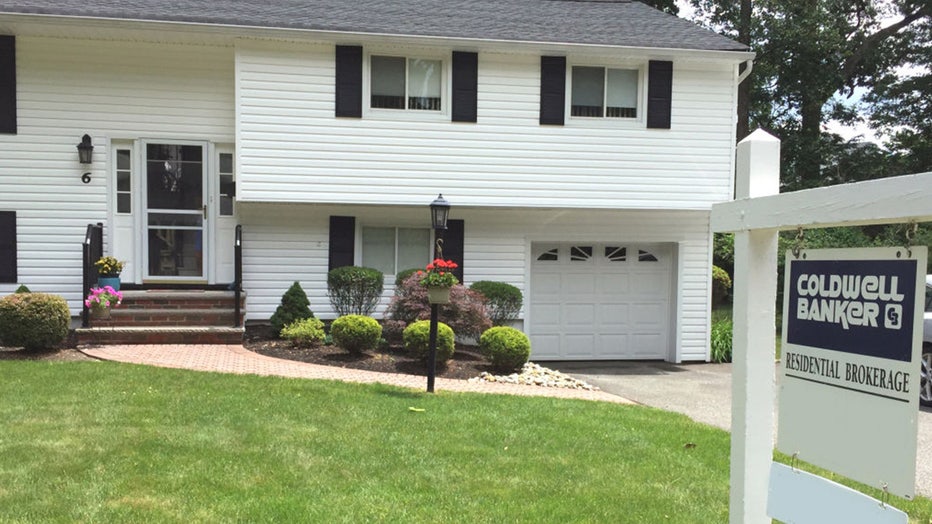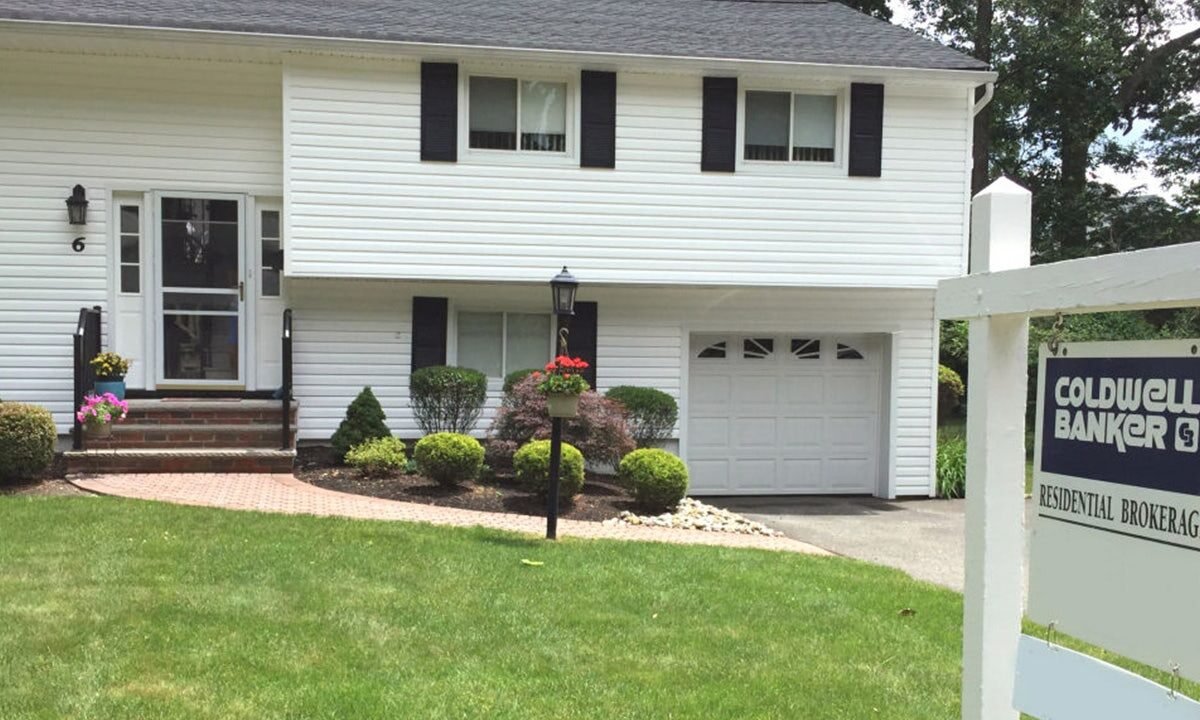Fed cuts interest rates by half-point
Economist Mike Walden joins LiveNOW’s Austin Westfall to break down what the latest interest rate cut by the Federal Reserve means.
Despite the Federal Reserve cutting interest rates by 50 basis points last month, mortgage rates continue to climb. But why?
The average rate on the benchmark 30-year fixed mortgage surged to 6.44% from last week’s 6.32%, according to Freddie Mac’s latest Primary Mortgage Market Survey which was released on Thursday.
The average rate on a 30-year loan was 7.63% a year ago.

Broker sign indicating house white house with aluminum siding and front lawn is for sale in suburban New Jersey neighborhood. (Photo by: Deb Cohn-Orbach/UCG/Universal Images Group via Getty Images)
10-year Treasury bonds set mortgage rates
The Fed doesn’t set mortgage rates, it only influences them, according to Norada Real Estate Investments.
Mortgage rates are largely impacted by the yield on the 10-year Treasury bonds.
“This yield is a benchmark used by investors to determine the return they expect to earn from government bonds compared to the risk profile of other investments like mortgages,” according to Norada.
Other factors impacting increasing rates
But it’s not just the yield from the 10-year Treasury bonds that are impacting mortgage rates.
Mortgage lenders need to cover themselves to ensure their businesses remain profitable, so they add margins on top of whatever the Treasury yield is, according to an NPR report.
The economy plays a huge factor in mortgage rates as well.
It might sound counterintuitive, but if the economy is doing well, this could actually lead to an increase in yields on Treasury bonds, which could also mean an increase in mortgage rates, Norada said.
Supply and demand is a contributor.
There are many homeowners who don’t want to sell their house because they got it at such a great pre-pandemic mortgage rate, according to Investopedia.
On the other hand, the few houses that actually are put up for sale, many buyers just aren’t willing to shell out the money on a high mortgage.
So right now, sellers and buyers are basically at a stalemate.
Mortgage rates will likely remain high
Mortgage rates will likely remain roughly where they are now, at least for a while, according to Derrick Barker, CEO and co-founder of Nectar, a firm that helps professional real estate investors through flexible financing.
“I would take the Fed at their word in expecting higher rates for longer,” he said. “So the current mortgage rate environment that we have today may be persistent for years to come, barring unanticipated economic swings.”





